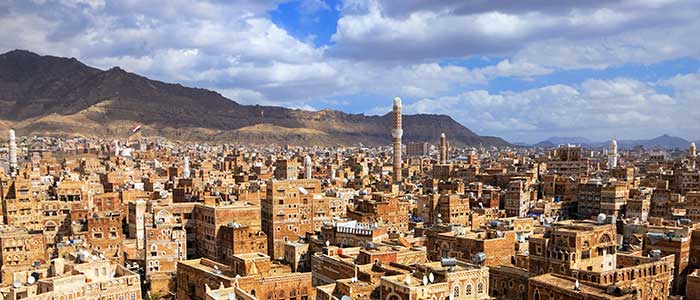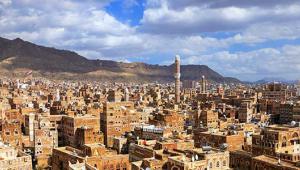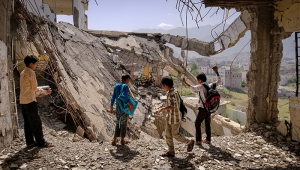Web-Yemen_shutterstock_86975528.jpg

Today Sana'a, Yemen's capital city, has been largely destroyed by the conflict.
Despite the dire situation in the country, which has been pushed to the brink of widespread famine by ongoing conflict, a $2.1bn humanitarian appeal was until this week only 15% met.
This left a $1.79bn funding gap for what the United Nations chief Antonio Guterres described as the “world’s largest hunger crisis” and a “tragedy of immense proportions”.
“We are witnessing the starving and crippling of an entire generation,” Guterres said at yesterday’s donor conference in Geneva, noting the country was “pitifully poor” – the poorest in the region – even before the current “man-made” conflict.
Fighting in the country goes back to the Arab Spring in 2011, but massively intensified in 2015 when Saudi Arabia, backed by the international community, intervened on behalf of Yemen’s government.
Since then, thousands have died or been injured or forced from their homes and large swathes of the country have been pushed into food crisis, endangering the lives of many more. Supplies of other basic goods, like fuel and medicine, are severely limited, public services have collapsed and individual livelihoods, public finances and the wider economy have been decimated.
The UN’s humanitarian department said 48 member states, the European Commission, a UN fund and four NGOs pledged a total of $1.1bn to the crisis yesterday.
That included $150m from Saudi Arabia, which critics pointed out was at odds with its role in the conflict. The Saudi-led coalition’s bombing campaign is widely thought to be responsible for the large majority of civilian deaths and injuries since 2015 and is responsible for the blockade restricting Yemen’s supply of basic goods.
Guterres hailed the conference as a “remarkable success”, and stressed that Yemen’s people needed to be guaranteed unfettered access to the humanitarian aid deliveries the funding will support.
NGOs however emphasised that a political solution to the conflict must be prioritised.
Sajjad Mohamed Sajid, Oxfam’s country director in Yemen, said: “While aid will provide welcome relief it will not heal the wounds of war that are the cause of Yemen’s misery.
“International backers need to stop fuelling the conflict, make it clear that famine is not an acceptable weapon of war and exert real pressure on both sides to restart peace talks.”













